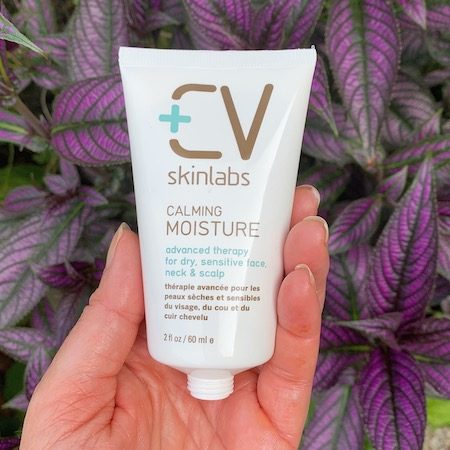
If you already have psoriasis, you may be at risk for scalp psoriasis.
This is when the same autoimmune condition attacks your scalp as well as the skin elsewhere on your body.
According to the National Psoriasis Foundation, 45 to 56 percent of people living with psoriasis have scalp psoriasis too.
If you’re one of them, read on to find out more about the condition and what you can do to reduce flare-ups and enjoy a healthier scalp.
What Is Scalp Psoriasis?
Psoriasis is a chronic skin condition that causes raised, itchy, and scaly plaques to form on the surface of the skin. It affects more than three percent of the population, which is more than 7.5 million adults.
Though researchers don’t know exactly what causes psoriasis, they do know that it is an immune disease. The immune system malfunctions, speeding up skin cell growth and causing inflammation in the skin.
Typically, normal skin cells grow and then shed (fall off) over a period of about a month. In people with psoriasis, though, this process is accelerated. Skin cells grow in only three or four days. Then instead of shedding, they pile up on the surface of the skin, creating plaques, inflammation, and redness.
These plaques look like scales and can appear anywhere on the body. Most commonly, they are found on the elbows and knees. People with scalp psoriasis have them on the scalp.
What Are the Symptoms of Scalp Psoriasis?
The symptoms of scalp psoriasis are similar to those of regular psoriasis, except they appear on the scalp, where they are harder to treat.
Symptoms include:
- Fine scaling that looks like dandruff or appears as thick, crusted plaques
- Scales that appear powdery with a silvery sheen
- Reddish patches on the scalp that may be thick and inflamed
- Dry scalp that may crack and bleed
- Mild to intense itching
- Burning sensation or soreness
- Temporary hair loss
What Is the Difference Between Dandruff and Scalp Psoriasis?
Scalp psoriasis can look like dandruff (also known as seborrheic dermatitis) because both conditions produce flakes of skin underneath the hair. But there are some differences.
Psoriasis causes a thicker buildup of dead skin cells and usually affects other areas of the body too—not just the scalp. Those with scalp psoriasis often have psoriasis on other areas of the skin as well.
There is also a difference in how the flakes look. Unlike dandruff, the plaques of scalp psoriasis have a silvery sheen and look like dry scales.
Finally, psoriasis can cause more extreme itching than dandruff. The skin may become so dry that it cracks and bleeds. The condition can spread from the scalp onto the face.
How is Scalp Psoriasis Treated?
If you have scalp psoriasis, the best approach is to see your dermatologist about it. He or she may treat the condition with topical medications that you can apply to the scalp. These may include medicated shampoos, steroid sprays, creams, scale-softening ointments, and other solutions. CV Skinlabs also offers some steroid-free, natural options that may be effective in soothing the symptoms of scalp psoriasis.
Other topical treatments include light treatments that help reduce flare-ups and for more stubborn cases, oral or injectable medications that target immune function. Doctors use these medications as a last resort for difficult cases because they can have side effects.
Tips to Help Treat and Soothe Scalp Psoriasis
If you have scalp psoriasis, there are many ways that you can care for your scalp to help reduce flare-ups and relieve symptoms. Start with your doctor or dermatologist’s recommendations, then consider these at-home tips.
1. Use Over-the-Counter Products to Soothe Symptoms
The most commonly used products for scalp psoriasis are shampoos. Look for those with salicylic acid. Salicylic acid helps soften plaques and scales, speeding up the shedding of scales from the skin.
Note: Doctors and dermatologists may recommend coal and wood tar shampoos for scalp psoriasis. Coal tar is made from petroleum and coal sources. Wood tar is made from wood sap, pulled from trees.
These work to slow skin cell growth and reduce inflammation, itching, and scaling. Though the U.S. Food and Drug Administration (FDA) lists coal tar as a drug ingredient used to treat psoriasis, they note that some studies have shown coal tar preparations used in this type of treatment were mutagenic (capable of mutating DNA, which can increase the risk of cancer formation). Chronic exposure to coal tar caused skin cancers in animals.
In general, however, tar shampoos have a good safety record in humans. So far, no studies have linked their use with an increased risk of cancer. They contain only a very small amount of coal tar that has been cleaned of many potential carcinogenic chemicals. Plus, the solutions are rinsed off, which helps reduce absorption.
It is important to know that they can irritate the skin and make it more sensitive to ultraviolet (UV) light from the sun. Always protect your scalp from UV rays with hats, shade, and scalp sunscreen. If you notice negative effects from the shampoo, stop using it and try something else (such as tea tree oil shampoo, listed below).
2. Try Tea Tree Oil
A good alternative to coal tar shampoo might be tea tree oil shampoo. Tea tree has antiseptic and anti-inflammatory properties that can help relieve symptoms. You can also mix tea tree oil with water or olive oil and apply the solution to the affected areas. Allow to dry then wash it off.
3. Try Light Therapy (Phototherapy)
Phototherapy uses UV light to slow skin cell growth. Handheld phototherapy units with built-in combs are available to help these UV rays reach the scalp. Usually, you go to a dermatologist for this treatment, which occurs three times a week for 6-8 weeks or until the plaques have cleared to an acceptable degree.
A 2019 review concluded that light therapy was the gold standard for treating psoriasis.
4. Find More Ways to Ease Stress
The National Psoriasis Foundation notes that stress is one of the primary triggers of psoriasis, including scalp psoriasis. Taking steps to improve stress management can help. Schedule a daily stress-relieving activity such as exercise, journaling, meditation, yoga, art therapy, time with loved ones or pets, music therapy, and more.
5. Be Gentle
Psoriasis challenges the scalp, making the skin more sensitive and increasing the risk of hair loss. Choose gentler products to use on your hair, such as sulfate-free shampoos and conditioners. Avoid vigorously washing and combing the hair, as this can lead to breakage.
6. Look for Turmeric
Turmeric is a common spice and a major ingredient in curry powder. Curcumin is a major component of turmeric. It’s been found to have powerful anti-inflammatory properties that may help reduce the symptoms of psoriasis.
In a small 2015 study, researchers found that participants who applied a topical preparation containing turmeric to the scalp for nine weeks experienced significant improvement in their symptoms.
Try applying our Calming Moisture to the scalp and leave it on overnight. All of our CV Skinlabs products contain the exclusive Tri-Rescue Complex consisting of turmeric, Reishi mushroom, and bisabolol. Calming Moisture was specifically developed to soothe, soften, and help heal the skin on the scalp. It also contains oils that can help soften psoriasis plaques.
7. Loosen Flakes with Olive, Coconut, or Avocado Oil
Softening the psoriasis plaques is one way to help them slough off more quickly. You can do this with various oils—olive and coconut being good options.
The only problem is that you must apply them carefully to avoid having them sink into your hair. Particularly if you have fine hair, the oil can weigh it down. If your hair is naturally dry and frizzy, you’ll have fewer concerns as the oil can help moisturize and tame the hair.
Try massaging 1-2 tablespoons of oil directly into the scalp. Leave it on anywhere from 10 minutes to overnight, depending on your hair type. Use a fine-toothed comb to gently remove loosened scales, then rinse.
8. Cool Your Scalp with Our Rescue + Relief Spray
If you need an on-the-go treatment for when your scalp psoriasis flares up, try our Rescue + Relief Spray. It will help moisturize stubborn plaques while imparting a cooling, calming effect on the scalp. Plus, it will relieve annoying itching almost immediately. Take our travel-sized bottle with you for instant relief.
9. Practice Good Scalp Care
Most of us don’t think much about our scalps. But scalp care has gained awareness over the past few years, and there are more products out there than ever to help you enjoy a healthy scalp.
We have more tips in this post for how to exfoliate and moisturize your scalp. You can also try a scalp serum to help hydrate the skin beneath your hair and create a healthy environment for hair growth.
Do you have tips on how to treat scalp psoriasis?
Featured image by Kat Smith of Pexels.




